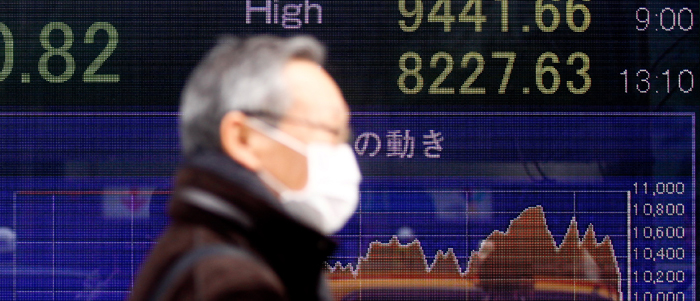In the wake of the March 11 earthquake and tsunami that damaged Japan's Fukushima 1 nuclear power plant, four UChicago experts addressed "the risks, realities, and future of nuclear energy" during an April 21 panel discussion at the Gordon Center for Integrative Science: Hussein Khalil, MBA'96, director of Argonne National Laboratory's nuclear energy division; Kennette Benedict, U-High'65, executive director of the Bulletin of the Atomic Scientists; urban and labor economist Robert Topel, director of the University's Energy Initiative; and moderator Mark Peters, PhD'92, deputy director for programs at Argonne.
Hussein Khalil I would like to comment on the earlier observation that the nuclear-energy industry, for its profit motivation, may not be emphasizing safety as strongly as it should be. If we look at Three Mile Island as an example, that accident was, first and foremost, a financial disaster for the utility GPU, which owned the reactor. The release of radioactivity was very minor. The health effects were very minor.
Today, of course, the same is true: all owners of these incredibly expensive facilities have a tremendous incentive to keep them operating, to keep them operating safely. And even in cases where [the reactors have] been paid off, they're cash cows, and they're of tremendous value. So I just want to differ from the view that safety and economics run counter to each other.
Kennette Benedict I think [the impression that safety is less a concern than profits] has to do, perhaps, with the initiation and the design features at the beginning. For instance, even in the '50s we knew about [potentially safer] pebble bed reactors. In the pages of the Bulletin, you can see articles about traveling wave reactors; you can see a lot of designs that were shelved, perhaps because we needed reactors that could also produce plutonium for our nuclear weapons. That is a possibility.
But if we look at the life extension of some of these reactors—which are now 40, 50 years old, like the one at Fukushima—you have to ask yourself, why don't we shut those down, because we know there are better designs out there? Are we interested enough in safety to say, let's go full bore on some new designs that we are pretty sure are going to be a lot safer, rather than keeping around these old reactors, which, yes, may be cash cows, but that do present some really sticky problems.
A nuclear disaster anywhere is one everywhere. And surely the nuclear industry is clear about that, and they understand it. But it's the action in the face of that knowledge that leads me to believe that there's a disconnect there.
Mark Peters You're sort of going where I wanted to go. [The United States gets] 20 percent of our electricity from nuclear. There are certain realities that we face. I believe that 23 units have the same Mark I design [as the Fukushima reactor]. So what should the US do in response to Fukushima, Kennette?
KB Clearly, we've already taken the right steps. We're talking about inspecting existing plants, once again making sure that all of the safety measures that should be in place are in place.
I believe that this would be a good time to take a very deep breath and a very big pause. … Let's sit down and think about this. I'm sure you at Argonne are working on new designs all the time. You would probably prefer that some newer techniques go into place. I know the Chinese, for instance, have a pebble bed reactor that they've been working on for ten years. Our expert, [former Argonne director Rob Rosner], tells me that the Germans perfected this.
So there are some new designs around. If we're going to build them, why don't we take a deep breath, pause, and say, maybe we should think about transformation of the industry. Rather than around the edges making sure that we've still got the right things, and the backups to the backups, and this in-depth defense, why not just take a major break now?
Rather than going ahead with a nuclear renaissance, as it's been called—one of [the Bulletin's] authors, Alex Glaser at Princeton, calls it an age of discovery—this horrible disaster allows us to take that historical analogy and think about this as a time for new discovery in nuclear technology, ones that will be, hopefully, much safer and take into account, at the outset, safety issues.
HK I completely agree that there's a tremendous incentive to develop new reactors that have more inherent, more intrinsic safety features, and we've been doing this for some time at Argonne and at other research organizations. A lot of these reactors, such as the pebble bed reactor and the liquid metal sodium cooled reactor, which have additional passive characteristics, have been developed to a fairly high degree of technical maturity, but none of them has been successfully commercialized yet because it appears that they can't yet compete on an economic basis with the existing technology.
A research challenge for us is to improve the design of these systems and try to simplify them without compromising their innate safety features, but to try to bring them to commercial acceptance.
Robert Topel Let's think about the costs of what we've been talking about. Kennette referred to the "horrible" accident, and I agree that it's sort of an extreme event, or "incident," as we used the word earlier. But let's keep in mind that 14,000 people died in the tsunami, and no one has died as a result of the catastrophe at the plant itself. And few have died in the past accidents, although many people die in coal mines and other things related to other sources of energy.
So most of the costs that we're talking about—and I'm using "costs" in an economic sense, and it's cost in the sense that I think you would use the term as well—are things that we conceive could happen with the use of this energy source, not things that have happened with this energy source. That's not to deny that those things are really important; it's just that we haven't seen the kinds of disasters, as yet, from our historical record, if we act as frequentists in this, that are the same as the ones we might conceive could happen in the future.
MP The economic barriers to developing new plants, bringing new technologies online, are real. Quite frankly, from my perspective, I don't disagree with you at all that it would be nice to bring these new technologies online, but when you talk to [Exelon CEO] John Rowe or someone like that, there's no incentive, from his perspective.
RT And there's likely to be less incentive, because now we've discovered in this country that we have a lot of natural gas that, while it doesn't have the same carbon advantages that nuclear has, it has a 25 percent smaller carbon footprint.
I don't think we need to think about the scale of [nuclear] operations as a big impediment. Capital markets can handle that. They can get the investments that will fund as big a plant as you want, and they can look out into the future and see what the returns are.
But there's a great deal of uncertainty about government policies and what the tax on carbon or something like that might be; those are the kinds of impediments that I'm thinking about.
It's worth noting that we haven't built a new plant since [1996]. That's a little bit misleading because it's been longer than that since we've built a refinery in this country, but we end up producing more fuel from refineries. The same thing is happening, as I understand it, in nuclear plants. The share of nuclear and our total use of electricity has remained fairly constant, but we're using a lot more electricity, so it's worth squeezing more out of every plant or running them more efficiently than they did before. So it's not as if, by not building plants, the nuclear share or nuclear footprint in the electricity market is declining; in fact, it's been maintained over all those years.






 Slide Show
Slide Show



